The Scoperang
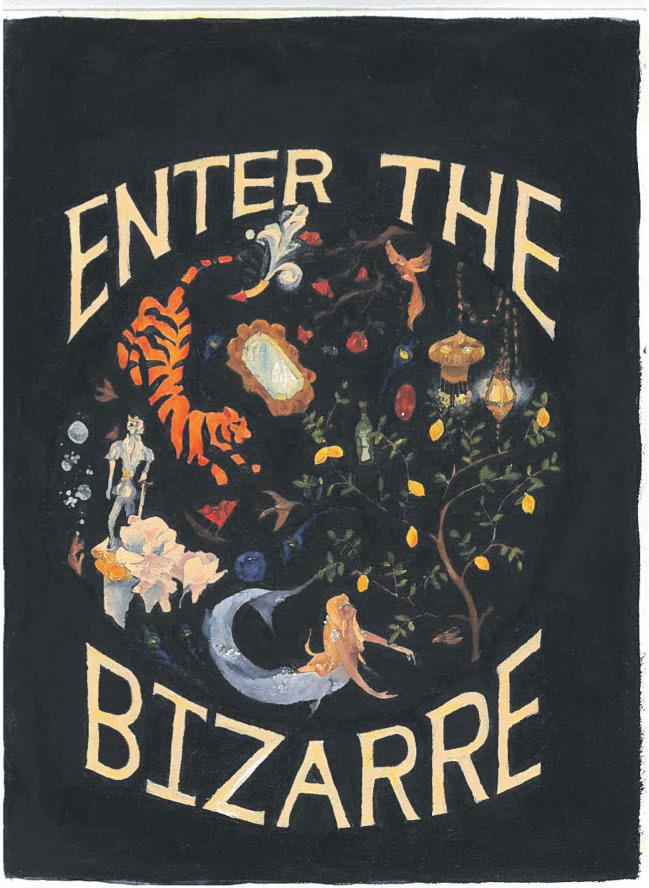
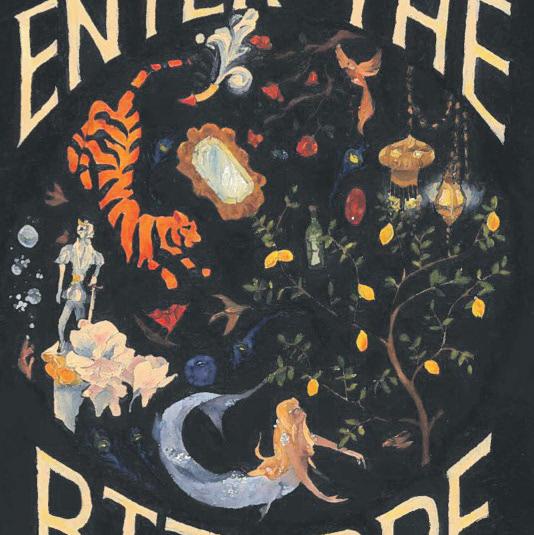



All the years of weekly migraines could not have prepared me for the head-splitting pain that shot through my eyes. There was nothing peculiar nor interesting about that Tuesday morning. Everything was quite normal, average, if you will. It was raining and the sun didn’t offer much warmth from behind the clouds. The cashier in the shop wasn’t kind or rude. My shoes weren’t comfortable but they also didn’t give me blisters. The bus was slightly late.
Everything was normal. So boringly mundane and uninteresting that I was almost relieved when I dropped my groceries in pain. Finally something happened in my life. But the headache quickly ceased to be interesting, and turned into unbearable pain that made me drop to my knees in the middle of the sidewalk. I could feel someone’s comforting hand on my shoulder. I could hear people talking, the shuffling of their feet. But I could not move.
I don’t know how long I remained in that state. It could’ve been 30 seconds. The pain made time stand still and I felt that for the rest of my life I’d be stuck there, clawing at my hair and sending prayers to all the gods I did not believe in, to stop this agony.

But like all bad things, it passed. I could finally open my eyes, and with the pain gone, I was embarrassed to find myself on my knees in the middle of the sidewalk with the apples I had just bought rolling around on the street. I was surprised when the warmth of the sun hit my cheeks. The weather sure is unpredictable, I guess. I was even more surprised to find that nobody was touching my shoulder. There was no-one talking or kneeling down next to me. All the people on the sidewalk were trying to push their way through the usual peak-hour crowd, paying little to no attention to what was happening around them.
I brushed the dirt from my knees and stood up. I felt like someone plunged my head into ice cold water. No matter how hard I tried to gather my thoughts, it was like trying to catch gossamer. I could briefly feel their presence before they slipped away. I picked up my grocery bag but didn’t bother to run after the apples.
I didn’t know where to go, I knew I was going somewhere, but why? Where? The confusion clouding my thoughts was painful, but not in a tangible way like the headache. This pain cut deep, as though someone had ripped out a part of me, not even bothering to replace it. I felt like a kid that lost their guiding hand in a supermarket, I wanted to cry. Why can’t I remember? Did I hit my head? Where is my home? Where is my
family?
The only thing that stopped me from breaking down in the middle of the city was the shock of someone grabbing my jacket and confidently leading me forward. The strange young woman smiled at me and told me to follow. She was chatting to me like we knew each other. Having lived in a big city for many years I was used to weirdos approaching me on the street. So I yanked my arm away, as any sane person would. She looked hurt. I racked my brain for any clues on whether I knew her or not, but just as before, it was full of blanks. I said, more to myself than anyone else, that I didn’t know her. I asked her to get away from me. I think it came out louder than I had anticipated, since the people around us turned to stare. She smiled at them politely and it was followed by an explanation I was unable to understand. She apologised for her father but I don’t know how that would concern me, or the situation I found myself in. I asked her who she was. She gave me a name I didn’t recognise. The heavy haze clouding my thoughts was pressing on me like a collapsing roof. At that point, I didn’t care about sounding like a mad man. I started explaining to this stranger how my headache made me confused. I don’t remember anything. I was on the brink of crying. Her condescending look made me mad. I’m not stupid, I’m not mad. I just… I couldn’t remember, those things are not supposed to happen that early. I was hyperventilating. I just wanted to get out of there, out of the constraints of my brain. She smiled, gave me another condescending look. She asked me to follow her into the building in front of her. I was too tired to argue so I followed her. I just want to go home.
It was cool inside the building. The humming of the AC calmed me down even though the white walls made me feel another, emotional type of cold. Someone greeted me at the door, they said a name, could it be my name? Why do those people know me?
I followed the lady into a room. She told me to wait and closed the door behind her. I tried not to be startled by the sound of the lock turning. When I turned around I caught a glimpse of a strange old man in the mirror and jumped. I spun around, but to my surprise, there was no one behind me. The headache came back, not as strong as before though. I looked back in the mirror and touched my face. The old man did the same. I screamed. I screamed until my voice gave out and then I screamed some more.
I was in a hospital. Everyone there knew my name, al-
Image © Belen de Bruijnthough I was sure I’d never been there before. It was an abnormal memory loss for someone as young as me, that’s for sure, but those things happen. Their condescending tone made my blood boil. I tried to explain to them that I’m really a young man, but they just continued smiling with pity. I just needed to go home and then I’d remember everything, I was sure. But I never did. The hospital was my new home. Apparently, it had been for the past months. And just like that, my brain became my enemy. An undefeatable one at that. I don’t know if it’s everyone else around me that’s crazy, or if I just lost my mind. I still haven’t gotten used to the strange old man staring back at me in the mirror. No matter how many times I tried to explain what it was like to forget your whole life, they never listened. They just saw me as a sad, old man. I guess that’s who I am now.

 by Anonymous
by Anonymous
quite like the feeling of driving for the first time after getting your license, no grown-up in the seat next to you, no extra protection from traffic accidents you are so convinced everyone is staring at you and it is only a matter of time before they realize you’re not just another car on the road, you’re barely able to drive whatsoever if we subscribe to the idea that the human brain isn’t done developing until you’re 25 years old, you’re far from being a fully-formed person, you’re arguably not a person at all, much less one that should have full autonomy over a two-ton vehicle that could kill or at least grievously maim another living being without blinking an eye.
That isn’t to say teenagers aren’t people but I was not so aware of my place in the world, my identity, my personhood until I was driving alone for the first time after getting my license. For the first time, taking a place in the world. Not my place, not one that I had created for myself, nor one that I was forced into. A simple place: another car on the road, getting where I need to go.


Is the East Africa program perpetuating white saviorism, and white supremacy in general? As someone doing the program, this is a question I must constantly ask.
For those who don’t remember, last June some people submitted confessions calling out the East Africa students for giving “colonial vibes” on their social media. This resulted in a flurry of Facebook comments, both criticizing and defending the program. Some of the defensive comments
effort; we all pass, but the amount we’ve learned throughout is vastly different. The East Africa program is no exception. It is possible to skip all the readings and only look through the relevant pages for the midterm, and it is possible to bullshit a reflection about Me and White Supremacy (a mandatory reading). It is also possible to read everything required and learn so much about grassroots movements, post-colonial theories and concepts, and histories of specific countries. This means it ultimately comes down to the students: if students just want a vacation in Africa, that’s what they’ll get.
" We are going because we need to change our white supremacist viewpoints and we should feel some level of guilt that we even have to do this."
believe some current students do it for the wrong reasons, and that students in the future will continue doing it for the wrong reasons. But I also believe that many start the program for the wrong reasons and have their world turned upside down. And I believe that a majority of the students are genuinely interested in decolonization and doing the necessary work.
I encourage all students who are going or considering going to spend some time investigating their true motives before, during, and after the programme. Are you going to feel good about yourself? Are you going to help the less fortunate? Are you going to have a vacation? These are poor motivations. They feed into the narratives of white saviorism and white privilege. If you want to go, you need to be honest with yourself that this trip is and should be selfish in specific ways.

were quite fragile, which was surprising considering they had just completed a course about confronting your own fragilities. So I think it’s worth taking a look at the course and its impacts. For context, it has three parts: a spring semester course about decolonizing development, a June field course in Kenya and Tanzania, followed by a six-ish week internship in pairs, usually at a local organization.
First, I want to address the professor’s intention for this course. This is explicitly anti white supremacy. Corey is passionate about decolonizing development and noticing power imbalances within the discipline. The topics discussed are explicitly to make students confront white supremacy all around us. He is white, but he ensures that he is not the only, or even the main teacher in the course. There are 4 other core teachers in Kenya and Tanzania that give lessons, all of whom are from the places we study. The program is also designed to have numerous guest lecturers from local communities who are key civil society advocates and activists. Corey has spent 13 years adding this program to his long-term relationships with communities in the area, and works to foster a truly reciprocal relationship between UCU and the communities students stay in.
I firmly believe that (in general) each person gets out of a class what they put in. We’ve all been in classes where we can skip the readings, write an essay with a passing grade, and learn nothing. We’ve also all (hopefully) been in classes where we do every reading, every assignment, write a beautiful essay and learn a lot. It is important to recognize that both these kinds of people exist in all your classes. I’ve been in many where I put in all my effort and other students put in minimal
If students can go on this trip and still have the white savior mindset, wouldn't it be harmful? The short answer has to be yes. I absolutely see people perpetuating white saviorism while they’re in East Africa. If you’ve only ever posted photos of yourself on your Instagram, it’s pretty bizarre when you’re suddenly posting dozens of photos of African children that don’t even include you. If students post for the sole reason of gaining recognition for how they “helped all those kids in need,” faking some deep sentiment like “I learned so much on this life changing trip,” or the patronizing “look at how these simple people are so happy with their simple lives,” I do consider this white saviorism.
On the other hand, if you’re really respecting the purpose of the program, it’s very possible to have had genuine moments of change you want to commemorate. If you post a photo of yourself and a friend you’ve made, this is completely normal. The challenge is to see yourself as normal and the people you meet as just as human as everyone you meet in the Netherlands. This is only a “challenge” because of the white supremacy that is all around us. It has socialized us into not being able to see beyond people’s life circumstances.
I do believe that students in the past have done the program for the wrong reasons. I
It is selfish in that it is an opportunity for you to grow by learning to notice your subconscious racist assumptions and your positionality. It is selfish in that you are going to learn from the communities you spend time in, you are not going there to help them or to understand “how poor people live.” This is the only way to make us different from voluntourists: we are not volunteers and we are not tourists. We are going because we need to change our white supremacist viewpoints and we should feel some level of guilt that we even have to do this.
White supremacy (including white saviorism) is all around us, it’s not just on trips to East Africa. So yes, the East Africa trip has signs of white supremacy despite trying to be anti-racist, but our lives at UCU and wherever we’re from are covered in white supremacy that we don’t make an active effort to address. The East Africa program is a rare example of a program that openly confronts day-to-day white supremacy. It is not perfect and it will never be perfect, but it’s infinitely better than not trying at all.
Note: I’ve written all this having only done the first part of the course, so I haven’t experienced everything yet. I’m open to dialogue, whether criticism or questions, and I invite anyone who has the time to respond to this article in person or in another edition of The Boomerang.
Image © Paweł Bardziński Image © Paweł Bardziński Image © Paweł Bardzińskiher throat hurt because of all the crying that happened over the last days. she was feeling wobbly. all over the place in general. didn't know what to do. anymore. she stopped for a moment (the light was red) and started thinking. again. the thoughts just happened. they were not internally generated. they were grey and confusing and absorbing and convoluted. definitely not the ones you want to have on a Thursday morning when you’re trying to survive life.


Thursdays are almost like Wednesdays (or Fridays?) but it almost makes a difference. they are the grey area in between. Thursdays are grey and you can't do much to change it. they are the most numb days. definitely not bizarre.
nothing happens.
sometimes though your Thursday thoughts start to wrap around you and you start feeling like you're suffocating and you can’t do much about it because you're so so so lost and unsure and feel so so so grey. like a Thursday. not like a Wednesday (Addams?) (is there a reason for her name choice?) she wasn’t lost and didn't cry as much as you do. probably.
she was weird. definitely bizarre. definitely not as mediocre and predictable as you and the red traffic light are. (why do you want so badly to be bizarre?) (for Wednesday)
obeying the red light wasn't an issue. the crying wasn't an issue. the suffocativeness of thinking wasn’t an issue. the bizarreness was. (can’t you be more of a Wednesday?) (to self)
but maybe in all this greyness and Thursdayness you’re bizarre yourself? the fact that your thoughts control your actions and that they just happen is bizarre itself. the fact that you are able to define days of the week with colours is bizarre. the fact that you're able to define days is bizarre. the fact that you happen is bizarre (and beautiful?) your unexplained crying is bizarre. your thoughts are bizarre. thoughts are bizarre. Thursdays are bizarre. Thursdays are. Thursdays (still happen).
the Thursday morning dissolves and melts with your grey thoughts and the red traffic lights.
Wednesdays are purple. (she thought)
Image © Clara GrazianiCut just above the wound
And suck and suck, ‘til the poison is gone

Taking memory and sensation along with it
I stepped out, feet unprotected Heart willingly thrown to the wolves

Pathetically bored, pain is good for sport Bathed in dust, dust like gold Dust like heat

So now I carry a snake bite kit
Bound in leather, wrapped and tethered Because I’m never fully inoculated Against the anxiety and the alchemy of love
So I cut just above the wound
And suck and suck, til the poison is gone
Taking memory and sensation with it
By Claire aan de Stegge
Honestly i maybe kind of like myself
And honestly kind of thank you for that The fact that you wanted to be in my company Was always a pleasant surprise.
I was always happy to be around you Even though we both were timid Sniffing the air
But afraid to pull too much on the leash We walked on opposite sides of the street Like dutch dogs.
The financial industry is fuelled by risk-taking, promises of great profits that are often dependent on embracing the possibility of devastating losses. However, the recent bankruptcy of Silicon Valley Bank (SVB), and the following government bailouts, have laid bare a troubling reality of a distorted system, which unfairly forces the costs of failure onto those who are least able to bear them. In this article, I aim to scrutinize the economic fairness of such bailouts and shed light on how government intervention shields investors from the consequences of their financial missteps, ultimately leaving taxpayers to foot the bill.
to meet regulatory liquidity requirements. However, the bank failed to responsibly manage the long-term bond's sensitivity to interest rate fluctuations.
The other banks did not invest as heavily in long-dated bonds when interest rates were at record lows, a time when rates could only increase. If you run a bank that primarily receives cash deposits from startups and venture capital – businesses thriving in a zero-interest-rate environment– and you invest all that cash into bonds locked in for ten years at 1.56%, your bet relies on interest rates remaining low forever. Otherwise, as interest rates rise, these businesses will cease to receive new capital and begin depleting their savings.
taxpayers should not be responsible for covering the losses from these wagers.
The revelation that many of Silicon Valley Bank’s customers kept their entire cash reserves uninsured at a single bank, signifies a striking lack of financial competence. Any qualified corporate treasurer, even at a modest-sized firm, is aware of the $250,000 Federal Deposit Insurance limit, and manages cash assets accordingly to avoid keeping them uninsured at a community bank with negligible interest returns.
"SVB made a massive gamble without any contingency plan."
Although SVB remains largely unknown outside of California, the bank's influence within the startup community cannot be underestimated. The bank has catered to half of all venture capital-backed technology, as well as life sciences companies in the country, serving as a crucial financial partner to startup founders and venture capitalists alike.
This very specialisation could be seen as the root of Silicon Valley Bank's problems. Their troubles began with the investment boom accompanying the start of the pandemic in early 2020. As the preferred bank for California's young companies, SVB received billions in deposits from companies that secured significant funding from investors, accumulating nearly $130 billion in new deposits during 2020 and 2021.
The bank depends on the difference between the interest rate it earns from its investments, and the rate it pays on deposits; the sudden influx of cash became problematic because it struggled to lend all the money out. SVB chose to invest heavily in lowyield, long-term securities, aiming to earn a modest 1.56% interest rate. This decision seems puzzling, as it exposed the bank to huge interest rate risk without much return.
The decision might not have been as disastrous if the bank had taken measures to hedge against the risks involved. It still offered better returns than leaving the money idle. More importantly, it allowed SVB
"subsequent government bailouts have exposed a fundamental flaw in the financial system: the unequal distribution of risks and consequences."

Silicon Valley Bank's decision to lock in funds for ten years meant that if rates increased and their customers began withdrawing their accounts, they would need to sell bonds that had substantially decreased in value, resulting in losses. This is precisely what happened. SVB made a massive gamble without any contingency plan.
Reimbursing investors who choose to do business with such high-risk companies creates a significant moral hazard. While everyone should be able to bet with their own money, I do believe that the American
Over the weekend, the Chief Financial Officer at ROKU – a digital media hardware company – disclosed that $487 million of the company's cash was deposited at Silicon Valley Bank. This could rightfully raise questions about daily responsibilities of a corporate treasurer at ROKU, whose only responsibility was overseeing a single bank account where all the cash was kept. In spite of the shocking lack of risk management from the startups, the government opted to reimburse both insured and uninsured accounts. This choice questions the purpose of regulations when, in the face of a crisis, officials decide to use taxpayers' money to cover the errors of careless investors.
The collapse of Silicon Valley Bank and the subsequent government bailouts have exposed a fundamental flaw in the financial system: the unequal distribution of risks and consequences. By compensating all investors, regardless of their level of insurance or risk management, the government has effectively shielded them from the repercussions of their reckless decisions. To achieve a more equitable economic system, it is necessary for us to question the fairness of such bailouts, and ensure that government interventions serve the interests of all citizens, not just a selected few who hold the majority of the financial power.
The author of this article encourages open dialogue and welcomes feedback on both the content and writing style. Please feel free to share your thoughts by reaching out to k.wandrasz@students.uu.nl.
"In spite of the shocking lack of risk management from the startups, the government opted to reimburse both insured and uninsured accounts."Image © Soraya Keïta By Ollie Köhn-Haskins


the passenger behind me asks the flight attendant how many people are on the plane
it is an odd request but who wouldn’t want to know? (admit you do.)
i overhear 177, which is too many he is confident.
certainly sharing this impossible machine with 176 other soft vessels of souls & the things they loved enough to drag through security should overwhelm any person who has remained sane at all (are you?)
even walking down the street i want to turn facing square my fellow pedestrian of this city on earth & grip their hands together & scream & know that we walk through the same life filled with the same love & hurt & wonder
we all shift, eager, in our seats to achieve short satisfying glimpses of the city we have left so far below another passenger, next to me (the one who is bringing his daughter to her big soccer tournament in madrid) asks if we are on some sort of school trip together. i tell him no, but aren’t we all really? he tells me he knows someone from our university, someone from long ago.
the flight attendant smiles big & closes the curtain on the stage between business and economy theatrically, but we all still feel the same rumbling lift.
when we leave this incomprehensible metal vessel we will all have seen something terrible & beautiful & we will all pretend it never happened
Image © Lou Steinsfor you, who eats the inexplicable for breakfast. inherently, intrinsically, essentially out of place i’ve kept it going for this long, at some point the pretense becomes you, this is the last day i will ever want to die.

exalted, exhumed, all is revealed, do i even know who i am anymore? ruin yourself, it’s the first step to salvation.
unclench your fists, it’s okay if you start to dissolve. here, take this orange. it contains multitudes and contradictions, if it can, why not you?
the orange is orange the orange is green the orange is blue the orange is the orange is the orange is the orange is love.
there isn’t a road to follow, there isn’t anything at all. apologize to the wind, forget your own name, stare deeply at the kafkaesque image in the mirror and scream as loud as you can.
it can always be the first morning again.
Illustration © Aga Kubica

As I walked along the dunes, I saw the sun go up and down. It went too fast to follow. I tried to catch it with my eyes, but every attempt seemed to take a day off my life.
Years went by when I did nothing but move my head from left to right.
And when I took the time to rest, and looked back at the world around me, I could see how many years it had been. I counted the blades of dune grass and footprints, multiplied this by the empty chairs in beach clubs, and divided by every place I could still recognise.
I counted the waves, the fishes, the dunes I walked along, even the gusts of wind and grains of sand did not escape my gaze.
To verify, I counted the wrinkles on the faces around me.
That is how I counted my age, the number of years I had lived, and from that, I subtracted the years I hadn’t.
Being a fish, I have to look up to see the lilies. They make an impossible forest that keeps my world safe. Because people might think that they float on the surface, but I believe the lilies carry the sky on their shoulders, that they are the very structure that keeps air on land, and water in the sea.
My house is ascending. I was sitting calmly on the couch when it happened. There was a sudden jolt in my back followed by the thought “surely not?”
I ran toward the door, but it was too late. Farewell yard, farewell street, farewell home, farewell everything my house has ever known. As the Earth becomes smaller, the stars are getting larger, until I can see the five separate tips of each star, and the ink strokes that make space as pitch black as it is. Back on Earth it’ll be evening, so I’m in bed, gazing out the window. You can’t see the Earth from here, but everything else is a hundred times sharper. When I talk to myself I can hear the stars talking back. And I think I may have caught one winking at me.


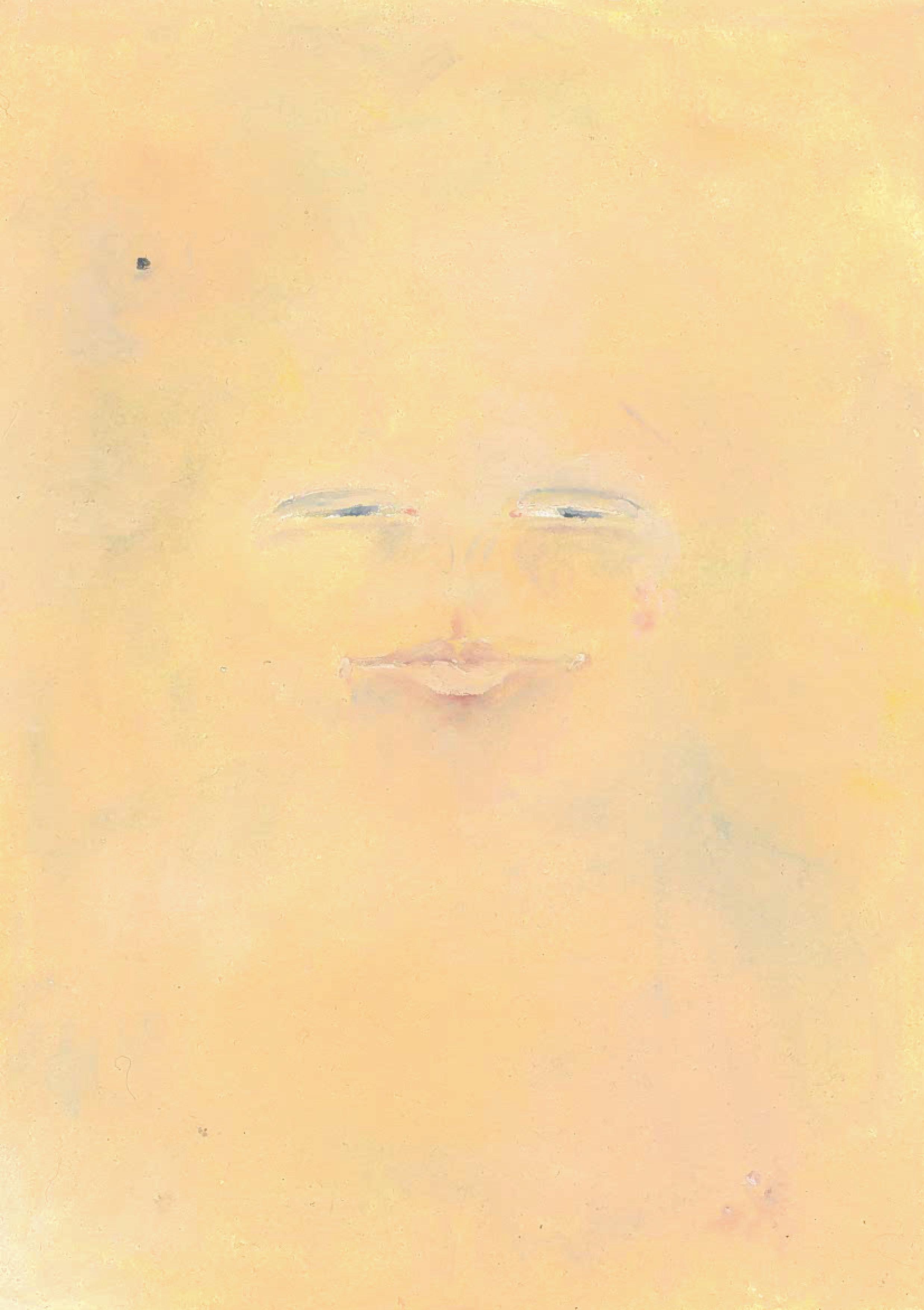
Call me sentimental. Call me a romantic.
My identity is a mosaic - swirling and hypnotic. Little colourful tiles of you, and you, and you, and them, in a constant state of fluctuating patterns, each as original as the first.
I believe we are more than “the average of five people you spend the most time with.” I believe we are a collection of pieces of people from the past and from the present. When I begin to care, with or without intention, I will take pieces of you, and maybe you of me, and adopt them into my own being. A habitual habit of exchange.
Some tiles stay — a permanent part of the exhibition.
From my father a complexity of tiles, deep greens and muddy browns — a love for the wild. I stride in his image towards it, mirroring his peculiar bounce in every step.
From my mother hues of tranquil blues and engraved birds. From her, the need to move and to travel guiding my heart’s compass.
Some tiles were momentary.
My mosaic was contradictory in nature then. Conflict in the form of harsh oranges, unsettling greys, and brutal reds. An obvious lack of experience — not knowing what to take and what to give. Some tiles I tried to pry off in pain, chipping them off with repetitive strikes. Others I clung on to. In one hand was glue, while the other pieced the tiles back together again, and again, and again, in hopes of resolution.
But after a while I gave into it, dropping my glue, allowing the tiles to be soon replaced by a more compatible other — a healing unknowingly needed.
Lessons have been learned since then, but even now some tiles are undecided.
But for now I will appreciate them for what they give me — a phrase from a friend that sits on my tongue, a note from my laugh reminiscent of someone else, a breakfast preference, and even a love of small spoons.
It is an expression of love in colours and engravings harmonious with those both in and out of my life. The tiles are constantly mixing, my image reshaping with each interaction — I sway with it.
Image © Jasmine Yi Carder Image © Veronika SemenovaBefore I came to UCU for exchange, I’d already caught a glimpse of what my friends’ exchange experiences were like on social media. What I saw on their Instagram stories formed an expectation of what my exchange in Utrecht would and should be like. Something prevalent in my friends’ exchange journey was that they got to travel around Europe every weekend. They skipped classes without any consequences. And being graded on a pass/fail basis means that going on exchange is synonymous with living in a utopia where one gets to escape from all kinds of academic stress.
Having spent my first two years of university on Zoom, I didn’t get to experience college life. Back in my home university, there are five elements of college life that students are expected to have experienced before they graduate. These are studying, dating, living in residential halls, joining student committees, and getting a part-time job. If you fail to complete any of these five tasks, the consensus is that you did not live your college life to the fullest. You did not really make the most out of the 4 years as an undergraduate student.
This is terrible news for me, because I’m already in my third year and I’ve only achieved the first and the fifth task. I always joke around telling my friends that I’m totally okay with being that student who prefers to chill in her room studying, reading, and writing. I love these activities, but deep down I know that FOMO hits me every now and then. I get jealous of seeing people being happier than I am. I wanted to try new things and make friends, but I told myself: you’re not a freshman anymore, forget about it. You’re a boring person. You can’t even sustain a conversation.
So, when I saw how carefree my friends were when they went on exchange, I thought to myself: going on exchange is exactly the missing piece that I’ve been looking for. Without the pressure of having to get an A, my perpetual dissatisfaction with my college life would come to an end. I would be happier. I would be able to gain back a college life outside of academics. And with this in mind, I looked forward to inventing a new self – the Sannya who would fit into the mould of what people back home thought a university student should be.
I felt pretty upbeat and excited about my life at UCU as things began to settle down. But when my friends back home started asking me if I’d been travelling around Europe with the new friends I’d made, whether I’d tried weed yet, or whether I’d gone to a bar or not, things took a bad turn. My answer to their questions was a solid “no”. I’ve done none of these things.

At that moment, I felt like a failure. I thought I was really living my life here, but the “no” weighed heavy on my shoulders. No one told me that there existed a checklist that I, as an exchange student in the Netherlands, was supposed to tick off before going home. I was worried that people would think that I’m still the same old boring person. If I’ve done none of the things that people have expected me to do, does that mean I’ve just wasted another opportunity?
This anxiety pressured me to justify my decision of not completing the “must-do’s in the Netherlands from a foreigner’s perspective”. But the only answer I could come up with was “I just don’t want to!”. And that was strange because I’ve never felt so strongly about what I don’t want. I’ve always convinced myself that what I want is what the majority wants. This make-belief worked for quite a while, but not during my time here.
I thought the key to happiness was to squeeze myself into the cookie cutter so that I’d come out as the perfect biscuit, shaped like everyone else. To me, answering “no” to my friends meant that I’d lost the key to happiness. I felt like there was something wrong with me for not wanting to try the things that are stereotypically Dutch, or stereotypically marked as what an exchange student would do.
But something even more peculiar was that doing unordinary things actually made me happier and more comfortable with myself, and this was something I have never experienced. I don’t want to travel around Europe during the weekends because there are so many museums in the Netherlands that I want to visit. The number and variety of museums back home is very limited so when I saw one dedicated to witchcraft (Museum de Heksenwaag) in Utrecht, I knew spending my weekends exploring museums would make me happy.
Attending Zoom university back home meant that I didn’t get the chance to meet new people, and I knew that making connections and having meaningful conversations with others was what I wanted from my exchange. Being brought up in an environment where drinking was not a predominant part of life, I knew that coffee chats instead of a night at the bar would excite me and recharge my social battery.
It was doing these things repeatedly that made me realise happiness isn’t as out of my grasp as I expected it to be. I just had to accept that happiness is an open-ended question whose answer changes depending on where I’m at. I cannot look for a happy life while also forcing myself to do things that I know will not make me happy. I had to accept that my equation to happiness simply isn’t the sum of the five must-do’s for university students. This equation might have worked for a majority of people, but I had to accept that I’m just not one of them. And having to figure out what makes me genuinely happy is such a bizarre thing because, all along, I thought there were default answers to happiness. It was as if a rulebook to happiness existed and that if I just followed it, happiness would fall into my pockets.
I’m now two months into the exchange, and I’m proud to say that I’m getting more into the swing of things. It is strange that I feel comfortable with having an experience that is different from my friends. I can say “no” without feeling the need to prove to others that I’m still living my exchange life, even if I did none of the so-called “must-do’s”. And something even more peculiar is that I actually managed to figure out how I want my exchange experience to go without referring to any of the five elements that people back home are so obsessed with.
It’s been quite a while since I’ve experienced happiness this way. I know I’m happy when I feel excited about my next museum visit. I know I’m happy when I feel energised after a coffee date with my classmate. I know I’m happy when I look forward to a walk in the Amelisweerd forest after class. I know I’m happy when grocery shopping, meal planning and doing laundry become a satisfying part of life. Happiness comes to me naturally when I stop thinking about it. It becomes less elusive when I give myself the freedom and permission to do whatever feels best to me. This is not to say that I no longer experience FOMO when I’m not doing the things that other exchange students are doing. But achieving happiness no longer feels like a daunting task. Happiness blooms when I’m least expecting it. It’s bizarre, it’s odd. But I guess one must experience the peculiarity of happiness, before reflecting upon how happiness can become more tangible.
By Mila Frattini
I fear the freedom of my own Roots. The itch to rip them outBeckonslike tipping over a ledge: head over heels.
* * *
Remembering can be like Biting one's tender mind.
The Tyrant who reigns from the heartsuffers.
Condemned to be an oxymoron: a casualty of his own Cruelty.
* * *

How can the round Bear the weight of all material things?
If thoughts had Masseswe would surely sink.
I felt like I had always known her.
The first time we met was at the bus stop, a couple weeks into second grade. Although I only lived a few blocks from school, I was still “too young” to be allowed to walk. The sky was overcast and rain was coming down like the mist sprayed on supermarket vegetables to keep them fresh. I was studying the fir trees lining the opposite side of the street. The trunks were wider than me, and who knows how many times taller. Their scaly bark was quilted in curving patterns that danced through the floating water. But it was their needles I loved. Thin, shiny, sharp, identical to sewing needles in every way but one: they were a deep velvety green. I spent several minutes mindlessly staring into them before eventually losing my focus. I looked away in search of the bus but instead, I saw her. It startled me. I hadn’t noticed her approach. She didn’t seem to notice me either. She was focused on her legs as they dangled a couple inches from the ground. I looked away but couldn’t help myself from taking several glances back.
She must have felt my gaze because she looked up from her shoes and gave me a small, tentative smile. I smiled too. She didn’t say anything. I kept watching her from the corner of my eye as we waited. Does she live around here? I thought. No, I haven't seen her before. Where did she come from?
My thoughts were interrupted by her outstretched hand: “Wanna be friends?” Her frankness startled me. I looked at her carefully. She had little braids in her dark hair and an eerily calm, yet warm, face.
“Um.. yeah.”
So we became friends.
I soon learned a lot about her. She had a big, yet reserved, personality. We would be sitting in class together, and no one would see anything special about her. The most people could say about her at first glance, was that she looked a little shy. But that wasn’t it. I knew she wasn’t shy. She was just saving up her words. Her face could be perfectly still, then a switch would flip, and she got going.
“Why are you reading that? This book is sooo unrealistic. The fifth is much better.”

I frowned, “Why?” Even a seven-year-old knows on some level that there is nothing particularly realistic about any of the Rainbow Magic fairy books.
“Well, you see, in this book the friends get abducted by elves, and Ruby does this thing where she tries to save everyone, but she really should have waited for them to send her their signal. And Indigo wasn’t in this one very much, even though she’s the smart one. And Amber, don’t even get me started on Amber. Who would lose their wand in a bush?....” Overtaken by an outburst of passion, she went on and on. Her face lit up, and her eyes sparkled as she looked at me, right at me. I was mesmerized.
When I realized she had finished I fumbled for a response. “Ahh…I don’t know. They tried their best.”
She got this teasing look on her face that said, oh, how lost you are. “Sure, but really, they were so dumb in this one. Don’t you think?”
“Yeah, I guess you're right,” I hadn’t even gotten to the second chapter but something about her made me want to agree. She went off on long tangents like that semi-frequently. About fairies, people at school, the rules of games we had invented together, anything really. She acted as if she knew everything and I believed her. When she came alive with words, it was one of the first times I truly thought of someone as beautiful. Despite this, sometimes, it bothered me. There were lots of things about her like that. They were so bright, and yet a little off. Like when she pushed me out of my comfort zone and then kept pushing and pushing and pushing. Or, when she would randomly decide that I desperately needed her help and launch into a feverish plan to improve whatever I was doing, regardless of how unimportant it might have been. Usually, this stuff wouldn’t get to me, but when it did, she could tell. She wouldn’t try to hurt me, but she didn’t seem to care if she did either. It was like she found my frustration cute. People didn’t notice this about her. Not most kids, not teachers, nor my parents who adored her. It made sense, she had this way of being the sweetest person you’d ever met. It seemed that I was the only one who noticed the flip side. Then, there was this one time, when it was still warm outside, that I went into the yard to ask if she wanted to play. I didn’t know it yet but I would remember that day for a long time. I saw her and this petite girl with darling pigtails crouched in the blooming periwinkle vines that covered the area under the porch. They looked so angelic, so perfect. I couldn’t help but stay for a minute. I didn’t belong in such a lovely scene. Eventually, I approached them and the small girl smiled. My friend didn’t look up, “We’re busy.” I wanted to sit in the periwinkles too. I didn’t know what to say, so I just stood there and looked at them.
“Leave us alone,” she said. Her face was made of stone. Usually, when I sensed she was off, I retreated, but for some reason, I couldn’t pull myself away, “No, let me stay.”
“No.”
“Please?” I was whiny.
“Why are you butting in? I’m busy. It’s my house so just leave.”
“But-”

She changed. Her mouth grew thin and her arms rigid. Although she didn’t move, she started to take on the look of a doll that’s been grotesquely twisted out of shape. I froze. Then I saw her eyes. There was a look in them that I had never seen before, like I was something stuck to the sole of her shoe. “It’s my house!”
It felt as though the oxygen left the air around her. I could feel myself suffocating. At first, I didn’t know what to do. I started walking without making a conscious decision to do so. By the time I got to the backdoor of my house, I was in tears. They leaked out of my eyes in great, big droplets. I didn’t know where they came from; I felt so empty. Of course, my dad was worried, so he sent me back to “make amends.” I pleaded with him to let me stay inside, I just wanted to forget what had happened. He wouldn’t let me and said I had to sort out my problems. I was ashamed by how much I resisted.


When I returned, the little girl looked at me worriedly, but my friend was back to normal. Though she was a little stiff, I thought everything was fine since she made a spot for me next to her. However, when I got to school the next day she was strangely elusive. The day after that too. A week passed. I couldn’t stand it. I was like a whipped dog.
Luckily, it wasn’t like her to keep anyone away for too long. For a while, she was really nice to me. I’d find small flowers sitting on my desk after recess. She’d make a point of sitting next to me at lunch, bringing me into conversations I would never have had the guts to join. She even helped me to start a club, something I had always wanted to do, but couldn’t on my own. But, even with all these niceties, even with her infectious joy and genuine care, there were moments when I could see something simmering just below the surface. A glimmer of that day in the flowers.
Despite our close relationship, her magical entrance into my life went largely unexplained. There was never talk of life outside of the bounds of our neighborhood. We only existed together.

The entire year passed in a similar fashion. For the most part, she was my best friend. We were two halves of a whole. Then sometimes she wasn’t. I grew to both love and fear her. She made the world vast, and us, its natural conquerors. I always knew she had that power over me. She knew better, was better, made me better. I was just lucky to bask in her sun. No matter how obnoxiously blinding she could be, I preferred it to the dullness of my life without her.
Eventually, second grade came to a close and the actual sun came. As I grew more carefree, I saw her less frequently. On the last day of school, she was listless and more withdrawn than usual. I tried to wake her up a bit, but none of my oreos or silly little jokes did any good. After school, we walked home together, when we parted ways she looked at me and really smiled for the first time in days. That was the last I saw of her for a long time.
Like the mist she came from, she vanished. At first, much to my surprise, all I felt was relief. When I woke up the next morning the world lost some of its gravity. I knew she was gone. But, as the days passed, I started to crave her. I thought that without her I would float off into the summer sun and burn to nothing.
I decided to look for her. If she wasn’t going to come to me, then I would find her. I walked aimlessly around the neighborhood and saw no trace. I bumped into friends from school and it was as if she had never existed. Eventually, I turned to real authority.
“You remember her right?” I asked.
My dad frowned, “Who?”
“You know, her. She used to be here all the time and then she disappeared.”
His brow furrowed as we sat in an endless silence. I fiddled impatiently. “Oh yeah. But… Do you want her back?”
“I think so. I mean, of course I do.”
“Then she’ll be back. Just give her some time.”
What kind of answer is that? I thought. I had no choice but to heed his words. I waited all summer for what I thought would be her grand return. After a while, I started to miss her less. Days and weeks went by, and nothing changed, so I left the house and played in the forest and read my fairy books.
One night, months later, after the trees had shrugged off the last bit of autumn, I stood in front of my bathroom mirror, gargling mouthwash. Suddenly, I was hit by an inkling. She was close. I looked out the window and down the hall on the off chance that she would be standing there, hands in pockets, like the first time we met. When I found no sign of her, I brushed the feeling off. A simple fantasy. I went back to the bathroom and spit out the mouthwash into the sink. The last of the pink bubbles went down the drain, and I looked up. There she was reflected back at me. Did you miss me?
Bizarre reminds me of the wild plot twists that some movies confuse you with in their last minutes. But, let me tell you, none have surprised me as much as Bajo Terapia (in English, “Under Therapy”). It’s a Spanish film that recently premiered in cinemas. And whenever I watch a movie, I like to share my theories, predicting the events with whomever happens to be sitting next to me, my latest victim being my mom. But boy, was I wrong about this one.
Three couples enter a studio somewhere in Madrid under their therapist’s orders. They are going to have a group couples therapy session. Without a therapist. On a table, they find a sheet of paper with instructions, a few letters numbered one through nine, and a trumpet, which, according to the sheet of paper, had to be played to signal when the group would move from one letter to the next. After a little bit of complaining, something along the lines of “aren’t we paying our therapist to do this?”, the three couples open the first letter.

The first task was to introduce themselves. Esteban, the film’s equivalent of a class clown, is the first one to do so. Being 42 years old, he’s the youngest one in the room. After leaving his job as a trip advisor, he began working as a personal shopper. His girlfriend, Carla, does not want to move in with him, even though they have been dating for two years, and are in a stable relationship. Daniel, who quickly starts hating Esteban, suggests that it could be due to his ‘interesting’ job as a personal shopper. But that’s just a suggestion, one which his wife, Laura, disagrees with, which is not surprising. Those two disagree about everything. For example, about who started flirting with who, when they were teenagers. Or, about who started what fight when they first married in their twenties, about how to raise their children, etc. One of the current issues they disagree on is how to help their youngest child who is being bullied at school. Laura is desperately trying to make Daniel take action, but he believes that their child should figure it out alone. Weak people don’t survive in this cruel world. Another character, Roberto, says that his son went through the same thing at school. He solved the issue by punching the bully’s father. When Roberto asks his wife, Marta, to agree with how genius his idea was, she nods shyly (and maybe she’s even scared?).
Letter by letter, all three couples are confronted with issues they didn’t even know existed, secrets they hid from one another, or the rest of the world. As everything slowly becomes clear, an unexpected plot twist nearly throws you off your chair. It’s one of those movies that makes you laugh loudly, and cry hard. Something not so light for a dark day.
I think a lot of progressive people, especially us queers, believe that being right will win you a debate – that if every argument is logically worked out, a bigot must simply concede. I realised this as I was watching a stage production of The Prom (as you might have concluded from my columns so far, I'm a bit of a musical nut). In this musical – go see it, it's heart-warming and hilarious – a diva changes a group of religious conservative teens' minds about gay people by singing a song. In the song, he explains that many things which are commonplace today, like divorces or tattoos, are actually forbidden by the bible. Although it was a touching song, it felt naïve to the extent that it was cute. And I agree, it feels like a ‘gotcha’ moment when you explain to some devout Christian conservative that if the bible is applied consistently, they wouldn’t be allowed to masturbate or eat seafood. But we’ve got to realise that the people
we’re talking to never experience it that way.
I do not say this to discourage you. In fact, I believe people should keep arguing with bigots until their numbers are too small to pose a threat anymore. I only propose that it’s mainly the repetition, and to a lesser extent the validity of your arguments that will change a queerphobe’s mind. The ‘divorce, masturbation, tattoos and seafood’ argument is going to sound absurd to any religious conservative person who hears it at first, because the idea of a deity sending you to hell for eating a lobster is simply stupid. It’s only when they’re involved in several arguments and exposed to queer people more often that a queerphobe will be habituated to us.
What I’m more afraid of is the ‘it’s not my job to educate you’ argument - the idea that queerphobes (whether they’re ignorant well-intentioned or purposely malignant) are the cause of queer people’s struggles, and are therefore responsible for educating themselves to
stop harming queer people. This argument has logic to it, but it’s a logic that a conservative Christian will never listen to. A God-worshipping queerphobe is never actually going to educate themselves on a subject that so violently clashes with their worldview, in the same way that I, as someone who respects the scientific method, don’t want to read a book on how aliens built the Egyptian pyramids.
I can only conclude that sometimes, even when we might not like it, it kind of is our job to educate people, because we can’t guarantee someone else is going to. What I don’t mean is that you should act against your long-term happiness or safety to achieve this. What I rather want to say is that if you’re a queer person who won’t be harmed too much by it, or who – like me – just likes arguing and answering questions, please keep talking to people who don’t understand us.



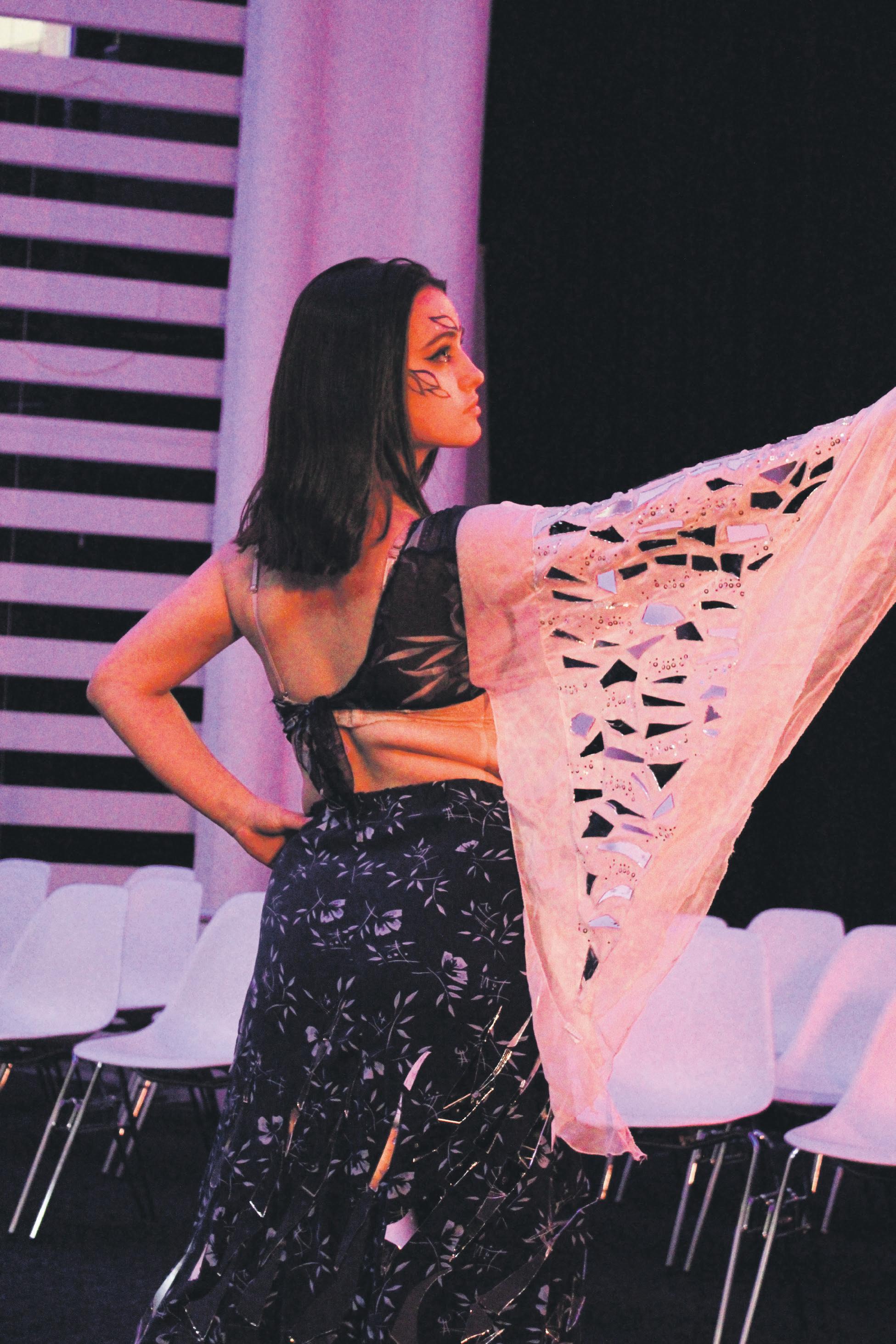


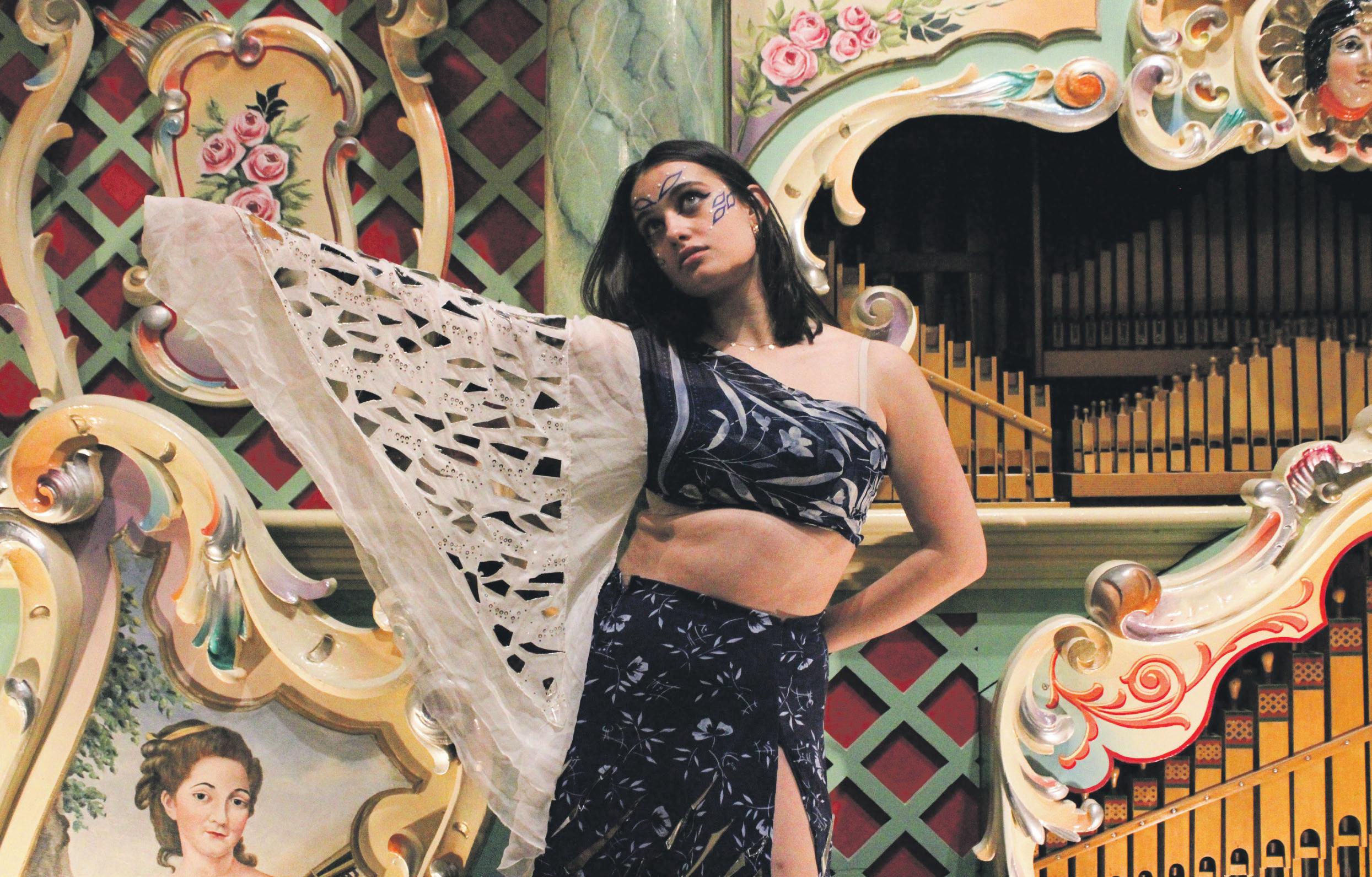
Strange how when the feeling arises, the tongue blocks the exit –swollen with regret in colours black and blue – my teeth sharp with practice.
I’m being choked –yearning to express lumps of syllables true; kindled by your voice, heartened by ideals – punished by experience.
As I gasp, I wonder: will this tongue learn to trust the one who will soothe?
Finally able to say this vulnerable confession:
I-
“My way of cooking pasta would probably send an Italian to the ER.”: A phrase I’ve heard way too many times during my time at UCU. Indeed, many students on this campus put all their creativity into their dinners instead of their essays. Hopefully, this Italian recipe might inspire some innovations in cooking pasta.
When I first heard about Spaghetti all’ Assassina, I was intrigued. Burnt pasta? It challenged everything I knew about Italian cooking. Originally from Bari, Italy, this dish chars pasta using a cast iron, giving the dish a smokey flavor. There are many stories behind its name. Some say that the chef that created the dish was a killer, others say it was made out of an accident. Regardless, it is a stunning dish with simple ingredients which makes this bizarre recipe perfect for UCU students.


1. In a medium pot, add 1½ cups of tomato sauce and ¾ cups of water. Stir until it becomes homogenous.
2. In a saucepan, heat up some olive oil. Make sure the whole pan is covered.
3. In the same pan, add as much red chili flakes and garlic as your heart desires. Once it is beginning to brown, add 2 tablespoons of tomato paste. Stir until fragrant.
4. Using a ladle (or a big spoon), add some of the tomato mixture into the pan and combine with the other ingredients.
5. Now, carefully place 300g of spaghetti on top of the sauce. There should not be a lot of liquid, but just enough so that the pasta is almost covered. As the sauce begins to boil you can use a fork to move around the pasta.
6. Allow for almost all the liquid to evaporate. Here is where the pasta will “burn”. Once you can’t see any more liquid, add another ladle of the tomato mixture and continue the same process until al dente. Use a fork or spatula to move the pasta after each ladle.
7. Between each ladle, let the pasta sit in the pan and caramelize. You will hear crackling and sizzling. Here you can calculate how much “burnt” you actually want.
8. After around 10 minutes, the pasta should be al dente! Serve with Parmigiano cheese and enjoy!
PS: GastronomyCo claims no responsibility for your extremely burnt pasta or damaged pan.
Dear everyone,
Deciding the theme for this Scoperang was kind of a mess. We went back and forth between highly intellectual themes, such as “Drop”, “Buzz”, “Uncooked” and “Umami”... In the end we united around a theme which represented what we wanted to see from you.
We asked for your oddities, intricacies, your goofy, giggly, strange pictures and silly words. Now we present to you a 20page collection of intense, weird, and extremely over-stimulating art - as well as your usual Boomerang articles :)
We want to thank The Boomerang and SCOPE boards for their hard work in this collaborative project, and we especially want to thank everyone who contributed a piece of their bizarre.
With the kindest of regards
Pablo, Violeta, and Tess
antimatter cattywampus distort flummox muon pulse xertz
bibble chrome dynamic gibberish peculiar quackle xiphiidae
cabotage discombobulate erinaceous macrosmatic pixel quark
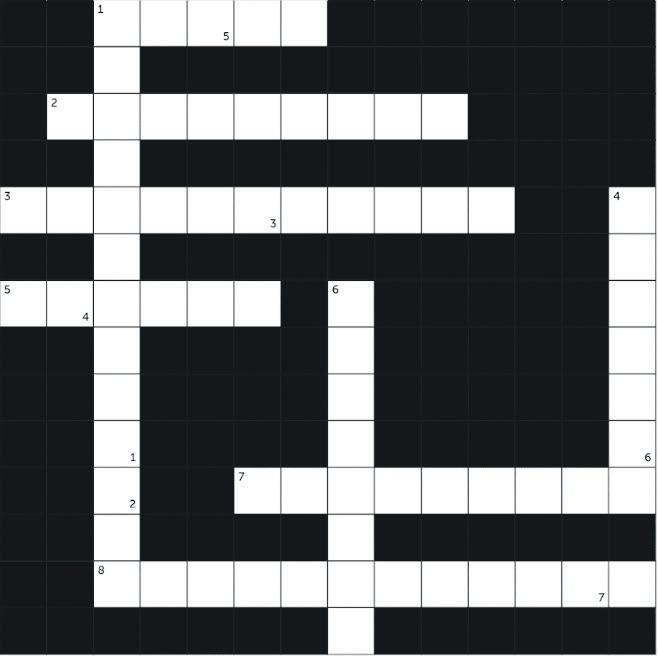
Pablo Ruiz Delgado| Editor-in-Chief
Alicja Anna Chojnacka | Editor
Mila Maria Grazia Frattini | Editor
Ida van Zwetselaar | Art & PR Manager
Jasmine Yi Carder | Layout Manager
Katrina Joy Funk | Editor
Across
1. One of the five kingdoms of life


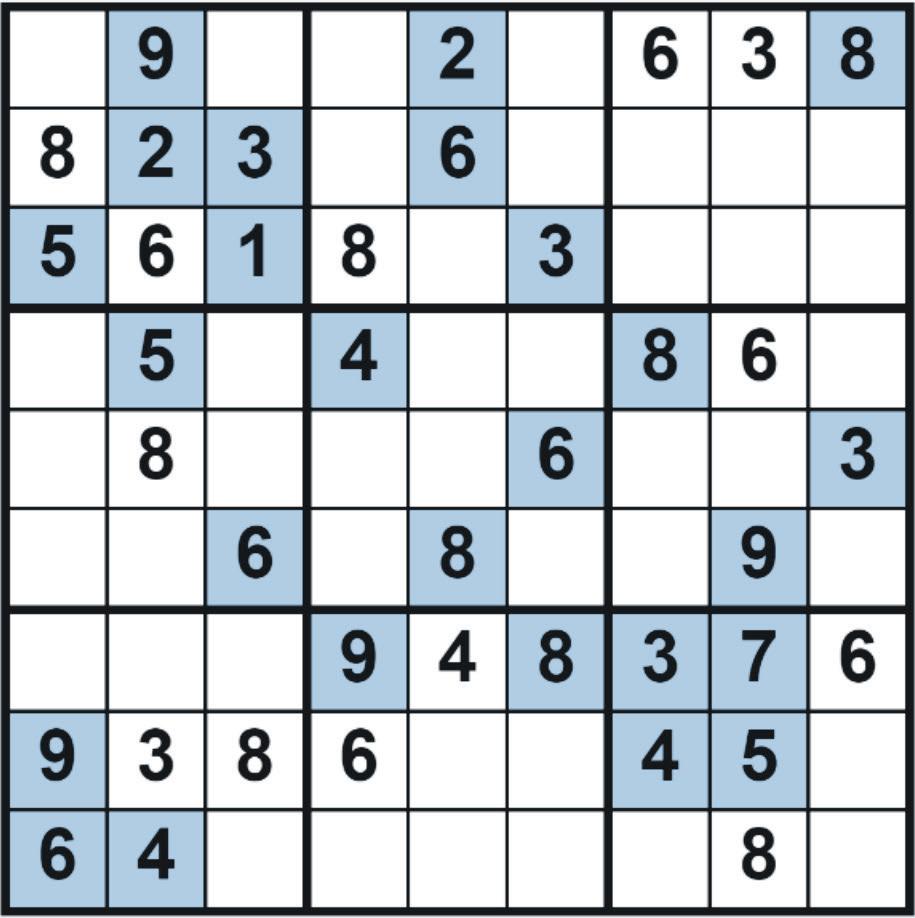
2. A harsh mixture of discordant sounds
3. Creature sent to kill Alice (in Wonderland)

5. Unicorn Dolphin
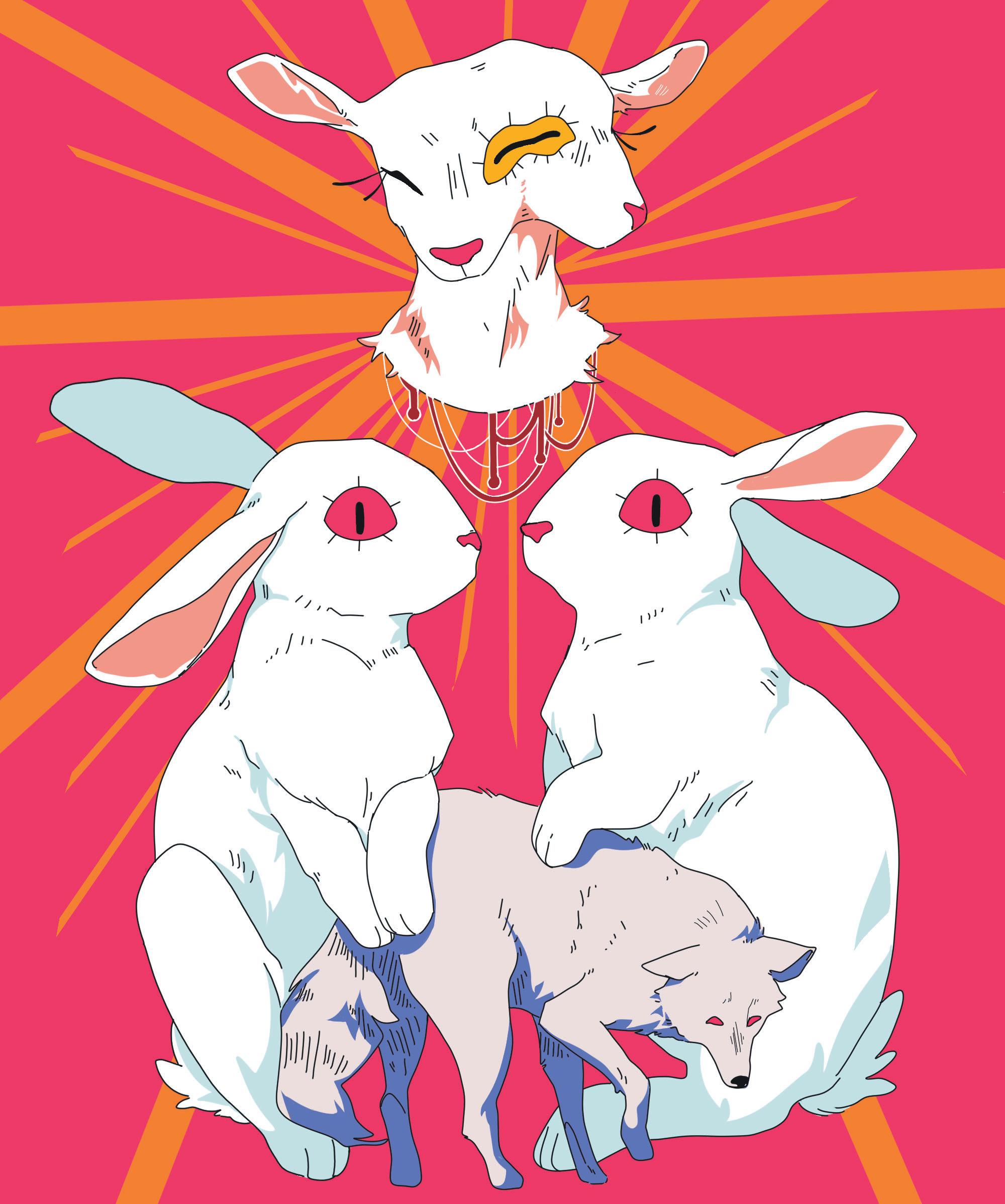
7. A commotion or fuss

8. Shopping street for Harry Potter
Down
1. Very surprised
4. Iconic vegetable from Avatar the Last Airbender
6. Nonsense or foolishness and also a type of pasta
THE SCOPE BOARD
Tess Wozny | Editor-in-Chief
Violeta Elso Fernández | Managing Editor
Zoé Costrel de Corainville | Layout Director
Ilia Verstraete | Production Manager
Belen De Bruijn | PR Manager
Estere Penke | Events Manager
Yaǧmur Zubaroǧlu | Intern
Lucy Mester | Intern
Boomerang uses wind energy printers